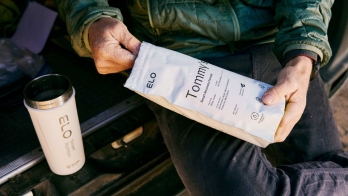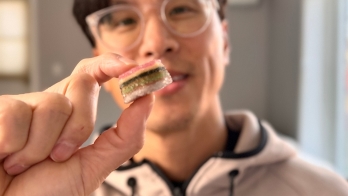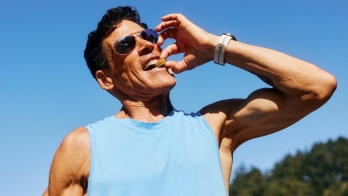Foods and supplement choices that impact testosterone
While weight management, physical activity, and stress levels all affect testosterone levels, what you put on your plate can also play a role. From ashwagandha and omega-3s to selenium and zinc, here’s what science has to say about boosting your testosterone with nutrition.

If you’re experiencing decreased muscle mass, reduced concentration, or a decline in libido, you may want to take a look at your testosterone levels. This hormone is a key player in both men’s and women’s health. While it’s natural for testosterone to decrease with age, studies have found that levels have been declining in young adult men in recent decades [ 1 43] 2 3
What is testosterone?
Testosterone is an androgen hormone produced by the adrenal cortex, the testes, and the ovaries [ 4 5
Testosterone levels are much lower in women, but this hormone still plays a role in a female’s bone health, reproductive system, and sex drive [ 6
What impacts testosterone levels?
Science shows that many factors play a role in testosterone levels, so here are some things that have an impact on this specific hormone.
Age. Research indicates that males’ testosterone levels decline, on average, 1.6% each year [
7
]. This is especially prevalent after 30 years old, as around 40% of men over the age of 45 and 50% of men in their 80s are considered hypogonadal (or having low testosterone levels) [17
].Genetics. Studies have found that testosterone has a high heritability and is greatly influenced by genetics [
8
,9
].Lifestyle. Physical activity levels and weight management play a role in testosterone levels; for instance, engaging in little exercise and being obese can decrease testosterone, whereas moderate physical activity and maintaining a healthy weight can improve levels [
10
]. But don’t overdo it–research shows that men who engage in intensive exercise training can develop low resting testosterone levels [44
]. Stress also impacts testosterone, as emerging evidence suggests that hypogonadism is a response to psychological and physical stress [11
].Diet. Diets low in nutrient-dense foods and rich in processed foods have been associated with low testosterone levels [
12
].Medication and steroids. Researchers have found that many antidepressants can impact testosterone and estrogen levels [
13
]. Additionally, it’s suggested that men and women who take anabolic steroids are at an increased risk for hypogonadism, even after they stop using steroids [14
].Health conditions. Studies show that chronic health conditions (such as AIDS, kidney disease, alcoholism, and liver cirrhosis) can negatively impact testosterone levels [
15
,16
].
Average testosterone levels by age
You can determine your testosterone levels with a simple blood test. However, since these levels vary throughout the day, a second test may be needed to confirm results.
Here are some average testosterone levels by age and gender [ 4
Men ages 13-17: 208 to 497 ng/dL
Men over 19 years old: 280 to 1,100 ng/dL
Women ages 13-17: 17 to 32 ng/dL
Women over 19 years old: 15 - 70 ng/dL
If your testosterone levels fall outside of this range, talk with your healthcare provider to see what options are right for you.
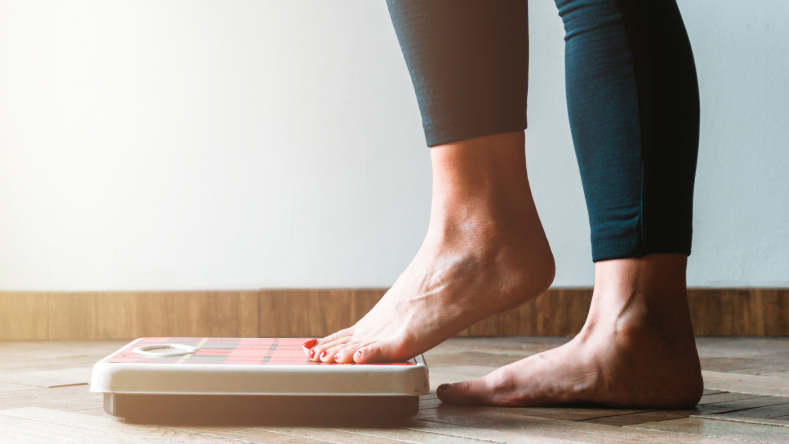
Symptoms of low testosterone
Low testosterone symptoms vary depending on your gender and age, but some symptoms associated with men include [ 5 18
Low sex drive (libido)
Weight gain
Mood swings
Increased body fat
Reduced muscle mass
Low self-esteem
Hair loss
Difficulty getting and maintaining an erection
Trouble concentrating
Depression
Some symptoms of low testosterone in women may include [ 6
Decreased libido
Reduced bone strength
Trouble concentrating
Depression
Are low testosterone levels dangerous for your health?
While it’s normal for testosterone levels to decrease with age, a lack (or very low levels) of this hormone can sometimes have long-term, serious effects on the body, especially for men. Research indicates that very low levels of testosterone in males has been linked to osteoporosis and an increased risk of death [ 42
Foods that boost testosterone
If you’re looking for ways to increase testosterone, you may want to start by examining what you put on your plate. Here are some science-backed foods that can help boost testosterone levels.
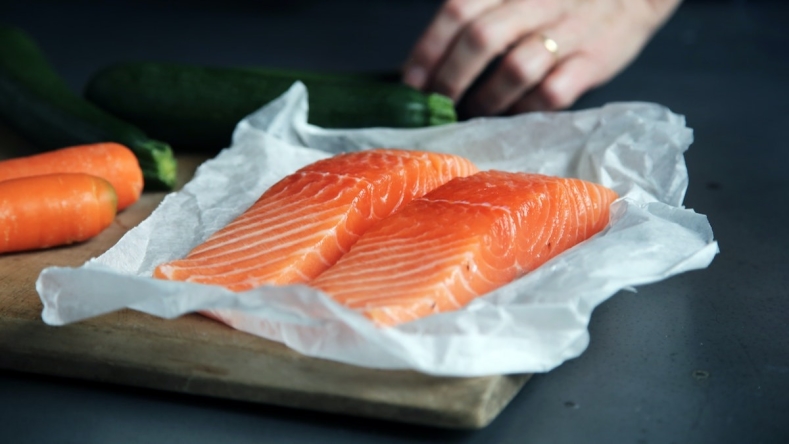
Fatty fish.
Fatty fish (like salmon, herring, and trout) can increase testosterone levels due to their high vitamin D and omega-3 fatty acid content. In fact, studies have found that men who have low levels of vitamin D and omega-3s often have lower testosterone levels compared to those with higher levels of these nutrients [ 19
Dark leafy greens.
Dark leafy greens (such as spinach, kale, and swiss chard) are well-known for their numerous health benefits, but notable research suggests that they may also promote testosterone levels. These vegetables are often high in magnesium 20 21 22
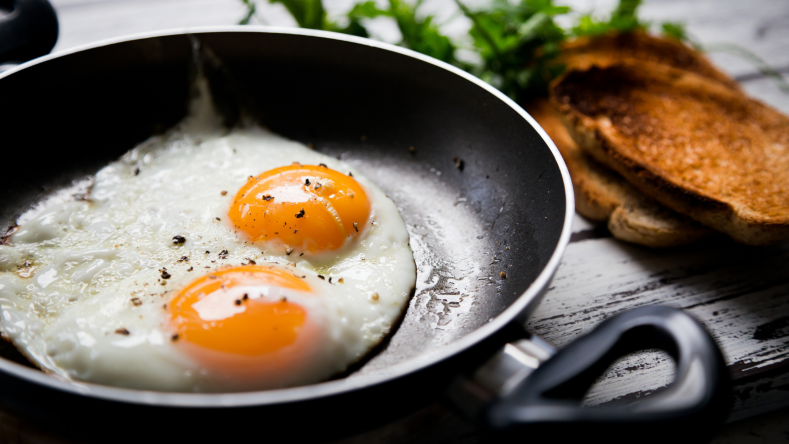
Egg yolks.
Egg yolks are rich in many vitamins and minerals, including selenium. This mineral may enhance testosterone production, as some research has found a correlation between high testosterone and elevated selenium levels [ 23 24
Shellfish.
Shellfish (such as shrimp, crayfish, crab, lobster, clams, scallops, oysters, and mussels) are excellent sources of zinc, selenium, and omega-3 fatty acids, all of which may help to support optimal testosterone levels [ 25
Testosterone supplements
While the food you eat makes a difference in your testosterone levels, you may not get all of the nutrients you need from diet alone. Here are some of the best supplements to boost testosterone, according to science.
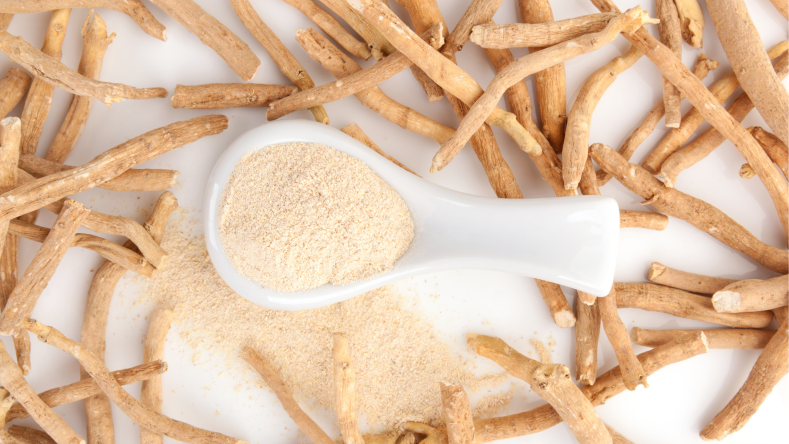
Ashwagandha.
This herb has numerous benefits for men, as scientific evidence suggests ashwagandha 26 27
Vitamin D.
Vitamin D 28
Studies show that 42% of Americans are deficient in vitamin D, with that number increasing to 74% in older adults and 82% in people with dark skin [ 29
Since vitamin D is only obtained through sunlight exposure and a few foods, supplementation
Fenugreek.
Fenugreek extract may have a positive impact on testosterone, as researchers found that 90% of men who took 500 mg/day experienced a 46% increase in testosterone after 12 weeks [ 30
Saw palmetto extract.
Studies indicate that saw palmetto extract may increase testosterone levels by blocking 5-alpha reductase, an enzyme which converts testosterone into dihydrotestosterone [ 31 32
Zinc.
This mineral plays a large role in testosterone levels, as a deficiency has been shown to negatively affect men’s sexual health and fertility [ 33 34
Ginger.
Studies show that men who took 0.5 - 1 g of ginger/kg of body weight/day experienced an 18% increase in testosterone compared to those who didn’t take a supplement [ 35
Tongat Ali and Fadogia Agrestis.
Tongat Ali Fadogia Agrestis 36
To test this, Elo co-founder and CEO Ari Tulla took both of these supplements to see if they had an impact on his testosterone levels; however, after 45 days, there was no measurable change. While Ari’s results were unsubstantial, other research shows positive results, so it’s best to consult with your healthcare provider before taking these (or any) supplements.
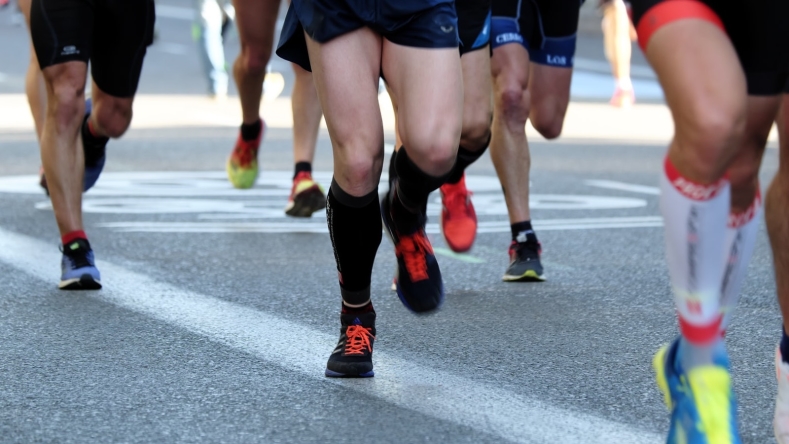
How to increase testosterone with lifestyle changes
Food and supplements aren’t the only way to increase testosterone levels; lifestyle factors also play a role. Here’s what science has to say about how your weight, physical activity, and stress levels affect testosterone.
Maintain a healthy weight. Research indicates that maintaining a healthy weight (or losing excess weight) can keep testosterone levels at an optimal level, as it’s been found that obese men have 30% lower testosterone levels compared to men at a healthy body weight [
37
,38
].Exercise. Strength training (in the form of full body weight exercises), specifically, has been shown to help improve testosterone levels in men, which in turn, contributes to muscle growth and improved athletic performance [
39
].Increase your REM sleep. Getting enough sleep each night is important for your overall health, but studies also suggest that it can help with testosterone production. Since testosterone production takes place during REM sleep, it’s suggested to get at least
one hour of REM sleep/night
to maintain optimal testosterone levels [40
].Minimize stress. Research shows that elevated cortisol levels (caused by stress) can reduce testosterone levels [
41
]. If you’re looking for ways to reduce stress, boost testosterone levels, and lower your risk of chronic disease, check outthis article
.
Summary
Testosterone is an androgen hormone that plays a role in libido, sexual function, mental health, muscle mass, hair growth, and more. While it’s natural for testosterone to decrease with age, a lack (or very low levels) of this hormone can sometimes have long-term, serious effects on the body, especially for men. Studies suggest that including testosterone-friendly foods (such as fatty fish, egg yolks, and dark leafy greens) and supplements (like ashwagandha, Vitamin D, fenugreek, and zinc) in your diet may help to boost levels. You can also help increase testosterone by maintaining a healthy weight, engaging in strength training, prioritizing REM sleep, and minimizing stress.
Disclaimer: The text, images, videos, and other media on this page are provided for informational purposes only and are not intended to treat, diagnose or replace personalized medical care.
Key takeaways
Testosterone is an androgen hormone, and is produced by the adrenal cortex, the testes, and the ovaries [
4
].Age, genetics, diet, lifestyle choices, medications, steroids, and certain health conditions all impact testosterone levels.
Scientific evidence suggests
ashwagandha
may improve male fertility by naturally increasing testosterone levels and enhancing sperm quality in infertile men [26
].Shellfish (such as shrimp, crayfish, crab, lobster, clams, scallops, oysters, and mussels) are excellent sources of zinc, selenium, and omega-3 fatty acids, all of which may support optimal testosterone levels [
25
].Dark leafy green vegetables are often high in magnesium, which is a mineral that helps increase testosterone by reducing oxidative stress and inflammation levels in the body. As such, studies have found that people with higher testosterone also had elevated magnesium levels when compared to those with lower testosterone [
20
,21
,22
].
References:
Baillargeon, J., Kuo, Y.-F., Westra, J. R., Urban, R. J., & Goodwin, J. S. (2018). Testosterone prescribing in the United States, 2002-2016. JAMA, 320(2), 200.
https://doi.org/10.1001/jama.2018.7999
Fui, M. N., Dupuis, P., & Grossmann, M. (2014). Lowered testosterone in male obesity: mechanisms, morbidity and management. Asian journal of andrology, 16(2), 223–231.
https://doi.org/10.4103/1008-682X.122365
Meeker, J. D., & Ferguson, K. K. (2014). Urinary phthalate metabolites are associated with decreased serum testosterone in men, women, and children from NHANES 2011-2012. The Journal of clinical endocrinology and metabolism, 99(11), 4346–4352.
https://doi.org/10.1210/jc.2014-2555
Total testosterone. Total Testosterone - Health Encyclopedia - University of Rochester Medical Center. (n.d.). Retrieved April 27, 2022, from
https://www.urmc.rochester.edu/encyclopedia/content.aspx?contenttypeid=167&contentid=testosterone_total
U.S. Department of Health and Human Services. (2016, April 25). Understanding how testosterone affects men. National Institutes of Health. Retrieved April 27, 2022, from
https://www.nih.gov/news-events/nih-research-matters/understanding-how-testosterone-affects-men
Davis, S. R., & Wahlin-Jacobsen, S. (2015). Testosterone in women--the clinical significance. The lancet. Diabetes & endocrinology, 3(12), 980–992.
https://doi.org/10.1016/S2213-8587(15)00284-3
Stanworth, R. D., & Jones, T. H. (2008). Testosterone for the aging male; current evidence and recommended practice. Clinical interventions in aging, 3(1), 25–44.
https://doi.org/10.2147/cia.s190
Greenhill, C. (2020). Genetic analysis reveals role of testosterone levels in human disease. Nature Reviews Endocrinology, 16(4), 195–195.
https://doi.org/10.1038/s41574-020-0338-8
Ohlsson, C., Wallaschofski, H., Lunetta, K. L., Stolk, L., Perry, J. R., Koster, A., Petersen, A. K., Eriksson, J., Lehtimäki, T., Huhtaniemi, I. T., Hammond, G. L., Maggio, M., Coviello, A. D., EMAS Study Group, Ferrucci, L., Heier, M., Hofman, A., Holliday, K. L., Jansson, J. O., Kähönen, M., … Haring, R. (2011). Genetic determinants of serum testosterone concentrations in men. PLoS genetics, 7(10), e1002313.
https://doi.org/10.1371/journal.pgen.1002313
Kumagai, H., Zempo-Miyaki, A., Yoshikawa, T., Tsujimoto, T., Tanaka, K., & Maeda, S. (2016). Increased physical activity has a greater effect than reduced energy intake on lifestyle modification-induced increases in testosterone. Journal of clinical biochemistry and nutrition, 58(1), 84–89.
https://doi.org/10.3164/jcbn.15-48
Afrisham, R., Sadegh-Nejadi, S., SoliemaniFar, O., Kooti, W., Ashtary-Larky, D., Alamiri, F., Aberomand, M., Najjar-Asl, S., & Khaneh-Keshi, A. (2016). Salivary Testosterone Levels Under Psychological Stress and Its Relationship with Rumination and Five Personality Traits in Medical Students. Psychiatry investigation, 13(6), 637–643.
https://doi.org/10.4306/pi.2016.13.6.637
Hu, T. Y., Chen, Y. C., Lin, P., Shih, C. K., Bai, C. H., Yuan, K. C., Lee, S. Y., & Chang, J. S. (2018). Testosterone-Associated Dietary Pattern Predicts Low Testosterone Levels and Hypogonadism. Nutrients, 10(11), 1786.
https://doi.org/10.3390/nu10111786
Pavlidi, P., Kokras, N., & Dalla, C. (2021). Antidepressants' effects on testosterone and estrogens: What do we know?. European journal of pharmacology, 899, 173998.
https://doi.org/10.1016/j.ejphar.2021.173998
Kanayama, G., Hudson, J. I., DeLuca, J., Isaacs, S., Baggish, A., Weiner, R., Bhasin, S., & Pope, H. G., Jr (2015). Prolonged hypogonadism in males following withdrawal from anabolic-androgenic steroids: an under-recognized problem. Addiction (Abingdon, England), 110(5), 823–831.
https://doi.org/10.1111/add.12850
Snyder, G., & Shoskes, D. A. (2016). Hypogonadism and testosterone replacement therapy in end-stage renal disease (ESRD) and transplant patients. Translational andrology and urology, 5(6), 885–889.
https://doi.org/10.21037/tau.2016.08.01
Duca, Y., Aversa, A., Condorelli, R. A., Calogero, A. E., & La Vignera, S. (2019). Substance Abuse and Male Hypogonadism. Journal of clinical medicine, 8(5), 732.
https://doi.org/10.3390/jcm8050732
Hypogonadism - StatPearls - NCBI Bookshelf. (n.d.). Retrieved April 27, 2022, from
https://www.ncbi.nlm.nih.gov/books/NBK532933/
McBride, J. A., Carson, C. C., 3rd, & Coward, R. M. (2016). Testosterone deficiency in the aging male. Therapeutic advances in urology, 8(1), 47–60.
https://doi.org/10.1177/1756287215612961
Chen, C., Zhai, H., Cheng, J., Weng, P., Chen, Y., Li, Q., Wang, C., Xia, F., Wang, N., & Lu, Y. (2019). Causal Link Between Vitamin D and Total Testosterone in Men: A Mendelian Randomization Analysis. The Journal of clinical endocrinology and metabolism, 104(8), 3148–3156.
https://doi.org/10.1210/jc.2018-01874
Maggio, M., Ceda, G. P., Lauretani, F., Cattabiani, C., Avantaggiato, E., Morganti, S., Ablondi, F., Bandinelli, S., Dominguez, L. J., Barbagallo, M., Paolisso, G., Semba, R. D., & Ferrucci, L. (2011). Magnesium and anabolic hormones in older men. International journal of andrology, 34(6 Pt 2), e594–e600.
https://doi.org/10.1111/j.1365-2605.2011.01193.x
Rovira-Llopis, S., Bañuls, C., de Marañon, A. M., Diaz-Morales, N., Jover, A., Garzon, S., Rocha, M., Victor, V. M., & Hernandez-Mijares, A. (2017). Low testosterone levels are related to oxidative stress, mitochondrial dysfunction and altered subclinical atherosclerotic markers in type 2 diabetic male patients. Free radical biology & medicine, 108, 155–162.
https://doi.org/10.1016/j.freeradbiomed.2017.03.029
Cinar, V., Polat, Y., Baltaci, A. K., & Mogulkoc, R. (2011). Effects of magnesium supplementation on testosterone levels of athletes and sedentary subjects at rest and after exhaustion. Biological trace element research, 140(1), 18–23.
https://doi.org/10.1007/s12011-010-8676-3
Shi, L., Song, R., Yao, X., & Ren, Y. (2017). Effects of selenium on the proliferation, apoptosis and testosterone production of sheep Leydig cells in vitro. Theriogenology, 93, 24–32.
https://doi.org/10.1016/j.theriogenology.2017.01.022
Qazi, I. H., Angel, C., Yang, H., Zoidis, E., Pan, B., Wu, Z., Ming, Z., Zeng, C. J., Meng, Q., Han, H., & Zhou, G. (2019). Role of Selenium and Selenoproteins in Male Reproductive Function: A Review of Past and Present Evidences. Antioxidants (Basel, Switzerland), 8(8), 268.
https://doi.org/10.3390/antiox8080268
Zinc deficiency - statpearls - NCBI bookshelf. (n.d.). Retrieved May 2, 2022, from
https://www.ncbi.nlm.nih.gov/books/NBK493231/
Examine.com. (2022, March 15). Ashwagandha - health benefits, dosage, side effects. Examine.com. Retrieved May 2, 2022, from
https://examine.com/supplements/ashwagandha/
Ambiye, V. R., Langade, D., Dongre, S., Aptikar, P., Kulkarni, M., & Dongre, A. (2013). Clinical evaluation of the spermatogenic activity of the root extract of ashwagandha in oligospermic males: A pilot study. Evidence-Based Complementary and Alternative Medicine, 2013, 1–6.
https://doi.org/10.1155/2013/571420
Chen, C., Zhai, H., Cheng, J., Weng, P., Chen, Y., Li, Q., Wang, C., Xia, F., Wang, N., & Lu, Y. (2019). Causal Link Between Vitamin D and Total Testosterone in Men: A Mendelian Randomization Analysis. The Journal of clinical endocrinology and metabolism, 104(8), 3148–3156.
https://doi.org/10.1210/jc.2018-01874
Parva, N. R., Tadepalli, S., Singh, P., Qian, A., Joshi, R., Kandala, H., Nookala, V. K., & Cheriyath, P. (2018). Prevalence of Vitamin D Deficiency and Associated Risk Factors in the US Population (2011-2012). Cureus, 10(6), e2741.
https://doi.org/10.7759/cureus.2741
Maheshwari, A., Verma, N., Swaroop, A., Bagchi, M., Preuss, H. G., Tiwari, K., & Bagchi, D. (2017). Efficacy of FurosapTM, a novel Trigonella foenum-graecum seed extract, in Enhancing Testosterone Level and Improving Sperm Profile in Male Volunteers. International journal of medical sciences, 14(1), 58–66.
https://doi.org/10.7150/ijms.17256
Pais, P., Villar, A., & Rull, S. (2016). Determination of the potency of a novel saw palmetto supercritical CO2 extract (SPSE) for 5α-reductase isoform II inhibition using a cell-free in vitro test system. Research and reports in urology, 8, 41–49.
https://doi.org/10.2147/RRU.S96576
Anderson M. L. (2014). Evaluation of Resettin® on serum hormone levels in sedentary males. Journal of the International Society of Sports Nutrition, 11, 43.
https://doi.org/10.1186/s12970-014-0043-x
Fallah, A., Mohammad-Hasani, A., & Colagar, A. H. (2018). Zinc is an Essential Element for Male Fertility: A Review of Zn Roles in Men's Health, Germination, Sperm Quality, and Fertilization. Journal of reproduction & infertility, 19(2), 69–81.
Santos, H. O., & Teixeira, F. J. (2019). Use of medicinal doses of zinc as a safe and efficient coadjutant in the treatment of male hypogonadism. The Aging Male, 23(5), 669–678.
https://doi.org/10.1080/13685538.2019.1573220
Waleed Abid Al-Kadir Mares*, W. S. N. (1970, January 1). The effect of ginger on semen parameters and serum FSH, LH & Testosterone of infertile men. The Medical Journal of Tikrit University. Retrieved May 2, 2022, from
https://www.iasj.net/iasj?func=fulltext&aId=71548
Leitão, A. E., Vieira, M., Pelegrini, A., da Silva, E. L., & Guimarães, A. (2021). A 6-month, double-blind, placebo-controlled, randomized trial to evaluate the effect of Eurycoma longifolia (Tongkat Ali) and concurrent training on erectile function and testosterone levels in androgen deficiency of aging males (ADAM). Maturitas, 145, 78–85.
https://doi.org/10.1016/j.maturitas.2020.12.002
Traish A. M. (2014). Testosterone and weight loss: the evidence. Current opinion in endocrinology, diabetes, and obesity, 21(5), 313–322.
https://doi.org/10.1097/MED.0000000000000086
Tajar, A., Forti, G., O'Neill, T. W., Lee, D. M., Silman, A. J., Finn, J. D., Bartfai, G., Boonen, S., Casanueva, F. F., Giwercman, A., Han, T. S., Kula, K., Labrie, F., Lean, M. E., Pendleton, N., Punab, M., Vanderschueren, D., Huhtaniemi, I. T., Wu, F. C., & EMAS Group (2010). Characteristics of secondary, primary, and compensated hypogonadism in aging men: evidence from the European Male Ageing Study. The Journal of clinical endocrinology and metabolism, 95(4), 1810–1818.
https://doi.org/10.1210/jc.2009-1796
Srinivas-Shankar, U., Roberts, S. A., Connolly, M. J., O'Connell, M. D., Adams, J. E., Oldham, J. A., & Wu, F. C. (2010). Effects of testosterone on muscle strength, physical function, body composition, and quality of life in intermediate-frail and frail elderly men: a randomized, double-blind, placebo-controlled study. The Journal of clinical endocrinology and metabolism, 95(2), 639–650.
https://doi.org/10.1210/jc.2009-1251
Leproult, R., & Van Cauter, E. (2011). Effect of 1 week of sleep restriction on testosterone levels in young healthy men. JAMA, 305(21), 2173–2174.
https://doi.org/10.1001/jama.2011.710
Puiu, A. A., Radke, S., Votinov, M., Habel, U., Herpertz-Dahlmann, B., Turetsky, B., & Konrad, K. (2019). Serum testosterone and cortisol concentrations after single-dose administration of 100-mg transdermal testosterone in healthy men. Frontiers in Pharmacology, 10.
https://doi.org/10.3389/fphar.2019.01397
Laughlin, G. A., Barrett-Connor, E., & Bergstrom, J. (2008). Low serum testosterone and mortality in older men. The Journal of clinical endocrinology and metabolism, 93(1), 68–75.
https://doi.org/10.1210/jc.2007-1792
Lokeshwar, S. D., Patel, P., Fantus, R. J., Halpern, J., Chang, C., Kargi, A. Y., & Ramasamy, R. (2021). Decline in Serum Testosterone Levels Among Adolescent and Young Adult Men in the USA. European urology focus, 7(4), 886–889.
https://doi.org/10.1016/j.euf.2020.02.006
Hackney A. C. (2020). Hypogonadism in Exercising Males: Dysfunction or Adaptive-Regulatory Adjustment?. Frontiers in endocrinology, 11, 11.
https://doi.org/10.3389/fendo.2020.00011

